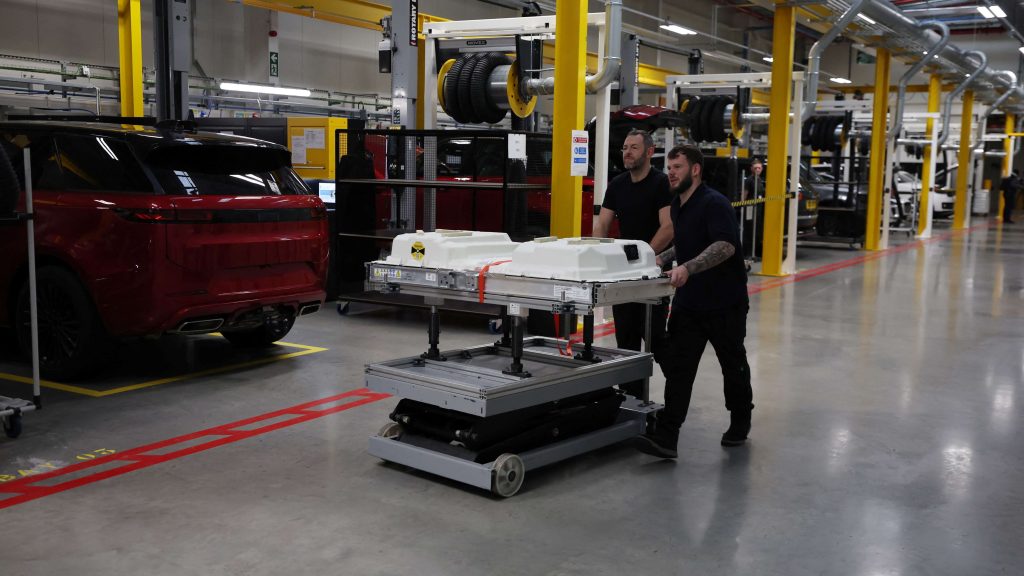
Jaguar Land Rover has developed a mobile energy storage unit for sale in partnership with UK startup Allye Energy using used batteries from plug-in hybrid Range Rover models, the two companies said on Tuesday.
The companies said a single Allye MAX Battery Energy Storage System (BESS) uses second-life batteries from seven Range Rover and Range Rover Sport plug-in hybrid vehicles (PHEV) and can store 270 kilowatt hours (kWh) of energy, or enough to power a British home for close to a month.
The European Union has mandated that over the next decade a growing proportion of materials in EV batteries must be recycled and that automakers focus on second-life uses for batteries – such as energy storage that uses healthy batteries that no longer have sufficient power to move EVs a long distance.
The MAX BESS can charge up to nine Range Rover PHEVs at a time and can be recharged using a standard EV charger.
JLR said the storage unit can replace a diesel generator and the first one will be used by the automaker’s engineering team for tests of the new Range Rover Electric that is due to launch later this year.
“Developing second-life battery projects like this is crucial if we want to make sustainability real in JLR,” Reuben Chorley, JLR’s director for sustainable industrial operations, said in a statement.
In January Synetiq, the UK’s largest vehicle salvage company, said it would provide salvaged EV battery packs for Allye to use in energy storage units.
(Reporting by Nick Carey; Editing by Susan Fenton)